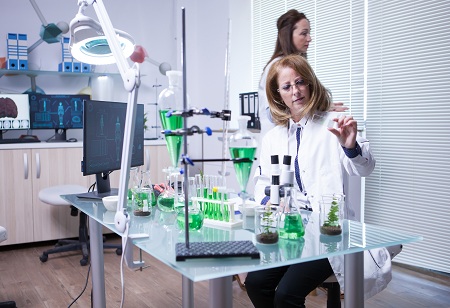Richa Singh ,Correspondent, India Pharma Outlook

The Biopharmaceuticals Market size is estimated at USD 516.79 billion in 2024 and is expected to reach USD 761.80 billion by 2029, growing at a CAGR of 8.07% during the forecast period (2024-2029). The pharmaceutical industry has undergone a transformative shift in recent years, with a significant focus on biopharmaceuticals and specialized manufacturing processes.
The increasing demand for targeted and personalized therapies, advancements in biotechnology, and a deeper understanding of complex diseases drive this evolution. So, let us look at the growing importance of biopharmaceuticals and the specialized manufacturing techniques that play a pivotal role in shaping the future of medicine.
Biopharmaceuticals are rising, thanks to a trend towards precise, custom treatments. Unlike regular drugs, biopharmaceuticals come from live organisms. They are giant, tricky molecules. They include things like monoclonal antibodies, gene therapies, and cell therapies. These all target disease in a more specific way.
An example can be given of monoclonal antibodies for cancer. Regular chemotherapy isn't very selective. It hits both healthy and sick cells. Monoclonal antibodies are different. They are built to find and stick to cancer cells only. This means less harm to healthy cells. Companies like Genentech, part of Roche, lead the way in this. They've made monoclonal antibodies like Rituxan and Herceptin. And this has changed how we treat cancer.
Creating these specific medicines needs certain methods to confirm that these complex molecules are always the same. High-tech ways of making these medicines, like cell growth systems and ways of cleaning the final product are vital for getting the high-quality medicines we want.
Bioprocessing tools are key in making biopharmaceuticals. These tools create intricate biological drugs. The industry keeps evolving, and new bioprocessing methods have emerged. These methods overcome obstacles regarding scalability, money, and the quality of the product.
Single-use bioreactors are good examples for this case. Companies like Thermo Fisher Scientific and Sartorius give us these tools. They help make products quickly and flexibly, removing the need for old-style stainless steel machines. These single-use bioreactors lower the chance of mixed contaminants while letting manufacturers adjust fast to changing demands. This results in an agile, effective production process.
More and more, continuous manufacturing is getting noticed in the medicine-making business. Stepping away from the regular batch making gives benefits like better work did continued watching, and more process effectiveness. By choosing constant biomaking, businesses make their production smooth, cut down on making costs, and improve the general quality of biomedicines.
Biopharmaceuticals' growing importance has pushed rules makers to better their guidelines. They aim to ascertain these advanced treatments' safety, effectiveness, and quality. The constant change seen in biopharmaceuticals and complex production methods necessitates detailed regulatory scrutiny.
One subtle example is the green light given to gene treatments, like the FDA's nod to Luxturna, brought to life by Spark Therapeutics. Luxturna is a therapy for rare hereditary blindness, marking a huge leap forward in the area. Gene therapy regulations involve tackling intricate concerns. These could include a regular appraisal of long-term safety and the treatment effects' lasting nature.
“This decade holds a positive outlook for India’s pharmaceutical industry, with a deeper focus on quality manufacturing, affordability of drugs, adoption of groundbreaking innovations and technology, and seamless integration of digital solutions. This synergy of technology and healthcare is reshaping the landscape of drug discovery, manufacturing, distribution, and patient care, which has helped it to improve its efficiency and productivity,” says Prateek Arora, Director of Product Management, PharmEasy.
In making biopharmaceuticals, quality assurance is critical. Because tiny changes in how they are made can change the medicine itself. Businesses pour funds into top-tier tech to keep an eye on this. They want to keep essential quality parts stable throughout the making process. They use methods like mass spectrometry, liquid chromatography, and next-gen sequencing. All this is to make sure biopharmaceuticals are made the same, dependable way every time.
Biopharmaceuticals and specialized production signal the dawn of a new age in healthcare. It promises precision, a personal touch, and fresh ideas. Cooperation between biopharmaceutical firms, tech service providers, and regulatory bodies is vital for navigating this ever-changing field. The creation and production of biopharmaceuticals offer both chances and hurdles. This requires thinking ahead about using new tech and aligning with regulations. By using advanced bioprocessing tech, sticking to high-quality standards, and adjusting to changing rules, the pharmaceutical field can meet its goal. That is, bringing pioneering treatments to address the unfulfilled needs of patients globally.